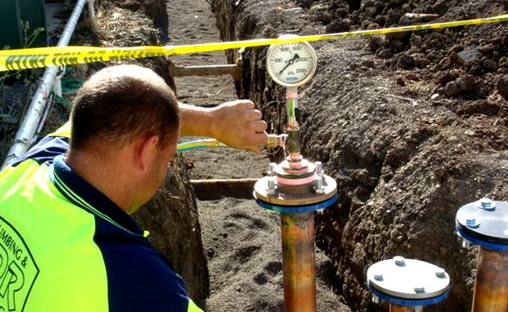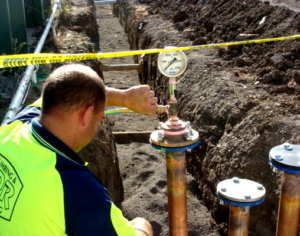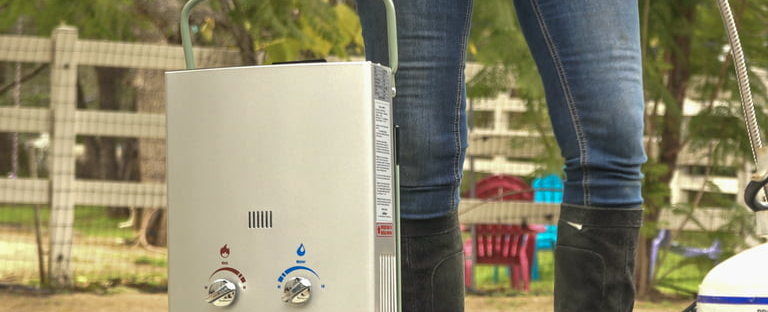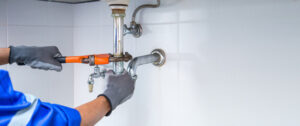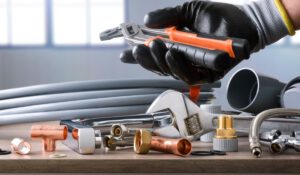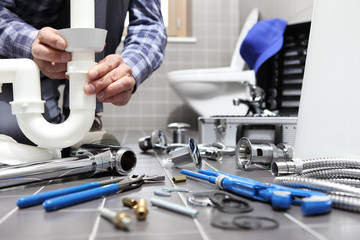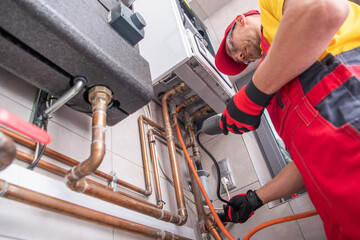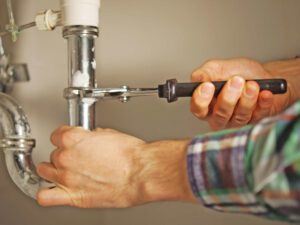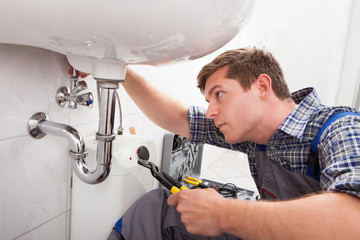When a plumbing disaster strikes, knowing who to call is important. Plumber Montgomery County can help you with your problem quickly and efficiently.

Some signs that you need an emergency plumber include water leaking from your ceiling or walls, a clogged toilet, or a gas leak. Angi helps you connect with local plumbers who offer emergency services.
When pipes burst, it can cause significant water damage to your home in a very short amount of time. This can be incredibly costly and lead to serious health issues for you and your family. You will usually need to call an emergency plumber for burst pipes, as they are a serious plumbing problem that requires immediate attention.
There are a few things you can do while waiting for the plumber to arrive that can help reduce the damage and minimize the cost. First, you should try to turn off your home’s main water supply if it is safe to do so. This will stop any more water from flowing into your home and will also save you money on your water bill. Next, you should move any furniture or personal items away from the affected area. This will prevent any further damage and make it easier for the plumber to access the area when they arrive. You should also use buckets to collect any leaking water and try to keep it as contained as possible. Finally, you should try to circulate air in any areas with exposed pipes. This can help prevent them from freezing and bursting in the future.
Pipes are more likely to burst in the winter, as the cold temperatures can cause them to contract and weaken. You should always have your pipes checked by a professional before the winter arrives and make sure they are properly insulated. You should also avoid running any water through them when it is very cold, as this can also cause them to burst.
Another sign of a burst pipe is if you have noticed any puddles or water spots on the floor in your home. If you have a water leak, it is important to call an emergency plumber right away, as they will be able to fix the problem before it gets worse.
When it comes to choosing an emergency plumber, you should look for one who is licensed and has plenty of experience. It is also a good idea to check their online reviews and customer satisfaction ratings before hiring them. This will ensure you get the best quality service and don’t end up paying for more expensive repairs down the line.
Water leaks can be a major headache and even a health hazard if not addressed quickly. They can lead to significant water damage, damp drywall and floors as well as create an ideal environment for mold growth. If you suspect you have a water leak, it’s important to call an emergency plumber as soon as possible to minimize damage and costs.
Water leaks aren’t always easy to spot. You may notice a drop in your water bill or a wet patch on the floor, but it’s also possible for them to be hidden behind walls and under cabinets. If you can’t locate the source of a leak, it’s a good idea to turn off your home’s water supply at the main shut-off valve before calling an emergency plumber.
Leaking toilets are another common plumbing emergency and can be extremely hazardous to your health if left untreated. If you notice a leak from your toilet, it’s important to take action immediately, as it could be causing serious damage to your floor and surrounding walls. Water leaks from toilets can be caused by a range of issues from loose or cracked flanges to broken pipe connections.
Kitchen sink water leaks are also common and can cause serious damage if not fixed promptly. If you find puddles or pools of water under your sink, it’s a good idea to contact an emergency plumber, as they will be able to locate and repair the leak before it causes further problems.
You can reduce the risk of water leaks by regularly checking your pipes and fittings for signs of damage or wear and tear, such as cracks or corrosion. It’s also a good idea to insulate your pipes in colder climates and to clean drains regularly to avoid clogging.
It’s a good idea to have an emergency plumber on speed dial, as they can be called at any time and will be able to deal with your plumbing emergency much faster than you would be able to. You can use a service such as Angi to connect with emergency plumbers in your area who have been reviewed and rated by past customers. This will help you to find a plumber who will provide you with the best service in your time of need.
If you walk into a bathroom in the middle of the night to find your socks soaking wet or can’t take a shower because there’s no hot water, it qualifies as a plumbing emergency. You can’t wash your hands, cook meals or sanitise yourself without hot water, and it’s not something that can usually wait until normal business hours to be fixed.
A burst pipe is another serious plumbing issue that requires the attention of an emergency plumber. This is because if it’s left untreated, you could experience flooding, severe property damage and even health problems from toxic mould and mildew. Luckily, if you know how to locate your home’s shut-off valve and turn it off quickly enough, this can minimize the damage.
Other signs that you need an emergency plumber include a toilet that won’t flush, a drain that’s blocked or discoloured water in your kitchen or bathroom. If you notice that your water bills are increasing, this could also be a sign of a problem with your pipes or the main water line.
Leaking taps and toilets aren’t as urgent as a burst pipe, but they should still be dealt with immediately. This is because leaking taps can cause water wastage, and over time this can lead to high utility bills. Also, leaking toilets can leave behind nasty, bacteria-ridden water that’s dangerous to touch.
It’s important to note that if you’re experiencing any of these issues, it’s best to call an emergency plumber straight away. This will help prevent further damage, reduce the cost of repairs, and ensure your peace of mind.
It’s also worth mentioning that it’s always best to shop around for a reputable emergency plumber before hiring one. This will give you a better idea of how much the service should cost and what to expect from it. It’s recommended that you ask friends and family for recommendations or search online for ‘emergency plumber near me’ to find the best option. You can also ask for estimates over the phone from multiple plumbers to compare prices before deciding.
A blocked drain can be a major nuisance. They can cause foul smells, stop water flowing, or even lead to flooding in your home if left unattended for too long. The good news is that there are many things you can do to prevent and clear a blockage, avoiding the need for an emergency plumber.
One of the most common causes of a blocked sink or drain is food waste and scraps. These should always be binned, rather than rinsing down the drain. This includes pasta, rice, bread and other foods that expand when wet.
Another common culprit is hair. This can build up in the shower, bathtub and basin drains causing a blockage. Using a drain screen or trap can help to reduce this issue, as well as making sure to dispose of any excess hair in the bin.
Fat and grease is also a big contributor to blocked pipes and sinks. It can build up over time in kitchen drains, leading to a blockage which is hard to clear. This is especially a problem in older homes with older, more fragile pipes.
Broken or cracked pipes are also a common cause of blocked drains and need to be fixed as soon as possible. These cracks can allow dirt and debris to enter the pipe, causing a blockage which is usually very difficult to clear.
If you suspect a broken or cracked pipe, turn off your water at the main water shut off valve. Then, contact a plumber for advice and a quote to repair or replace the damaged pipe. It is important to check a plumber’s credentials before hiring them, including reviews and testimonials from previous customers. Angi can connect you with reputable emergency plumbers in your area who will be able to get your water and drains back up and running as soon as possible. Just give us a call or fill out the form on this page to get started.

